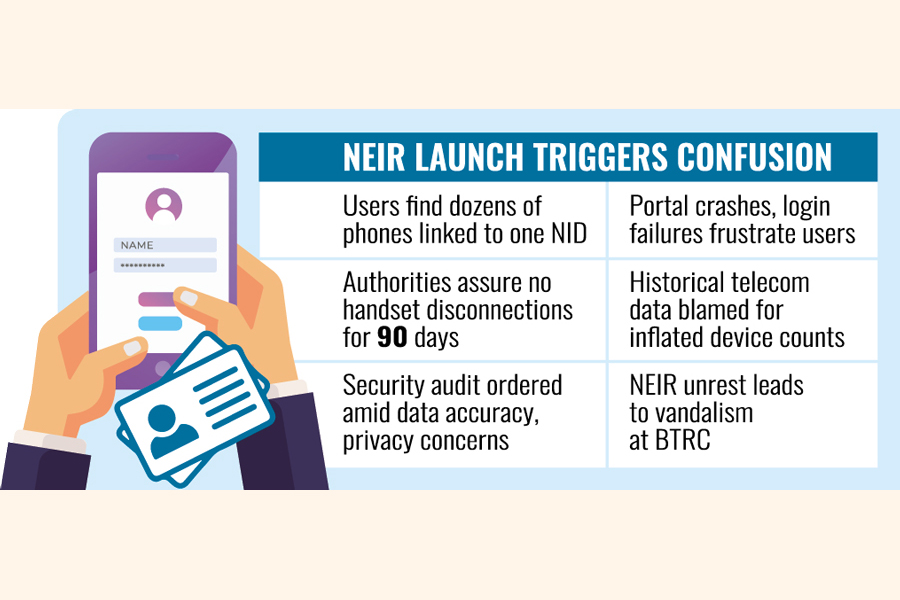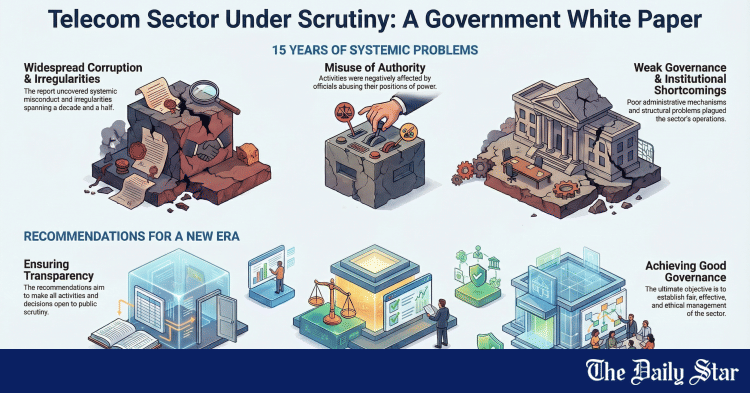Saif
Senior Member
- Joined
- Jan 24, 2024
- Messages
- 17,175
- Likes
- 8,228
- Nation

- Residence

- Axis Group


Mobile phone import, manufacturing taxes lowered
For locally manufactured mobile phones, he said, the customs duty, which was previously 10 per cent, has been cut to 5 per cent.
Mobile phone import, manufacturing taxes lowered
BSS Dhaka
Updated: 01 Jan 2026, 21: 52

Chief Adviser Professor Muhammad Yunus chaired the Council of Advisers' first meeting of the year at his office in Dhaka's Tejgaon area on 1 January 2026. PID
The Council of Advisers today, at its first meeting of the year, approved the draft National Urban Policy 2025 and decided to significantly reduce customs duties and overall tax incidence on mobile phone imports and local manufacturing.
The government made the decisions aimed at boosting planned urban development and strengthens the domestic mobile industry and making handsets more affordable for consumers.
Chief Adviser Professor Muhammad Yunus chaired the meeting at his office in the city's Tejgaon area on Thursday.
Later, Chief Adviser's Press Secretary Shafiqul Alam briefed the media about the meeting at the Foreign Service Academy here this afternoon.
He said 33 per cent of the country's total population lives in urban areas, who contribute 62 per cent to the GDP.
Therefore, the government approved the draft National Urban Policy 2025, marking an important step toward planned, inclusive and sustainable urban development to ensure expected living standard for urban people.
About tax reduction for mobile phone, Shafiqul Alam said the customs duty on imported mobile phones has been reduced from 25 per cent to 10 per cent.
For locally manufactured mobile phones, he said, the customs duty, which was previously 10 per cent, has been cut to 5 per cent.

A student checks her HSC result in mobile phone on 16 October 2025 Dipu Malakar
As a result, the overall tax incidence on imported mobile phones will come down from 61.80 per cent to 43.43 per cent, the press secretary said, for locally manufactured phones, the tax incidence will also decline significantly.
The government expects these measures would expand Bangladesh's mobile phone industry, attract more investors into local manufacturing, reduce prices, and discourage the inflow of used and refurbished phones from abroad, which often harm consumers and deprive the government of revenue, he said.
Shafiqul Alam said the Council of Advisers also discussed the state-arranged funeral and burial of three-time former Prime Minister and national leader Begum Khaleda Zia.
The adviser expressed gratitude to all concerned authorities for ensuring security and managing the large-scale arrangements with dignity and state honors.
About the Bangladesh Labour (Amendment) Ordinance, 2025, the press secretary said some complaints have been raised regarding certain provisions of the recently enacted labour law.
To address these concerns, the Council of Advisers formed a review committee, he said, adding that the names of the committee members would be disclosed soon.
The committee will examine the law thoroughly, identify any inconsistencies, and submit a report to the Council of Advisers within quickest possible time, Shafiqul Alam said.
Noting that the Council of Adviser also discussed Hajj management, he said it was observed that there are no significant complaints from pilgrims going under government management, while some issues persist in the private Hajj agency system.
Therefore, the press secretary said, the council of advisers discussed to explore ways to improve overall Hajj management, including bringing the people, show negligence in Hajj management, under the law.
Deputy Press Secretary Mohammad Abul Kalam Azad Majumder and Senior Assistant Press Secretary Foyez Ahammad were present at the briefing.
BSS Dhaka
Updated: 01 Jan 2026, 21: 52
Chief Adviser Professor Muhammad Yunus chaired the Council of Advisers' first meeting of the year at his office in Dhaka's Tejgaon area on 1 January 2026. PID
The Council of Advisers today, at its first meeting of the year, approved the draft National Urban Policy 2025 and decided to significantly reduce customs duties and overall tax incidence on mobile phone imports and local manufacturing.
The government made the decisions aimed at boosting planned urban development and strengthens the domestic mobile industry and making handsets more affordable for consumers.
Chief Adviser Professor Muhammad Yunus chaired the meeting at his office in the city's Tejgaon area on Thursday.
Later, Chief Adviser's Press Secretary Shafiqul Alam briefed the media about the meeting at the Foreign Service Academy here this afternoon.
He said 33 per cent of the country's total population lives in urban areas, who contribute 62 per cent to the GDP.
Therefore, the government approved the draft National Urban Policy 2025, marking an important step toward planned, inclusive and sustainable urban development to ensure expected living standard for urban people.
About tax reduction for mobile phone, Shafiqul Alam said the customs duty on imported mobile phones has been reduced from 25 per cent to 10 per cent.
For locally manufactured mobile phones, he said, the customs duty, which was previously 10 per cent, has been cut to 5 per cent.
A student checks her HSC result in mobile phone on 16 October 2025 Dipu Malakar
As a result, the overall tax incidence on imported mobile phones will come down from 61.80 per cent to 43.43 per cent, the press secretary said, for locally manufactured phones, the tax incidence will also decline significantly.
The government expects these measures would expand Bangladesh's mobile phone industry, attract more investors into local manufacturing, reduce prices, and discourage the inflow of used and refurbished phones from abroad, which often harm consumers and deprive the government of revenue, he said.
Shafiqul Alam said the Council of Advisers also discussed the state-arranged funeral and burial of three-time former Prime Minister and national leader Begum Khaleda Zia.
The adviser expressed gratitude to all concerned authorities for ensuring security and managing the large-scale arrangements with dignity and state honors.
About the Bangladesh Labour (Amendment) Ordinance, 2025, the press secretary said some complaints have been raised regarding certain provisions of the recently enacted labour law.
To address these concerns, the Council of Advisers formed a review committee, he said, adding that the names of the committee members would be disclosed soon.
The committee will examine the law thoroughly, identify any inconsistencies, and submit a report to the Council of Advisers within quickest possible time, Shafiqul Alam said.
Noting that the Council of Adviser also discussed Hajj management, he said it was observed that there are no significant complaints from pilgrims going under government management, while some issues persist in the private Hajj agency system.
Therefore, the press secretary said, the council of advisers discussed to explore ways to improve overall Hajj management, including bringing the people, show negligence in Hajj management, under the law.
Deputy Press Secretary Mohammad Abul Kalam Azad Majumder and Senior Assistant Press Secretary Foyez Ahammad were present at the briefing.





































